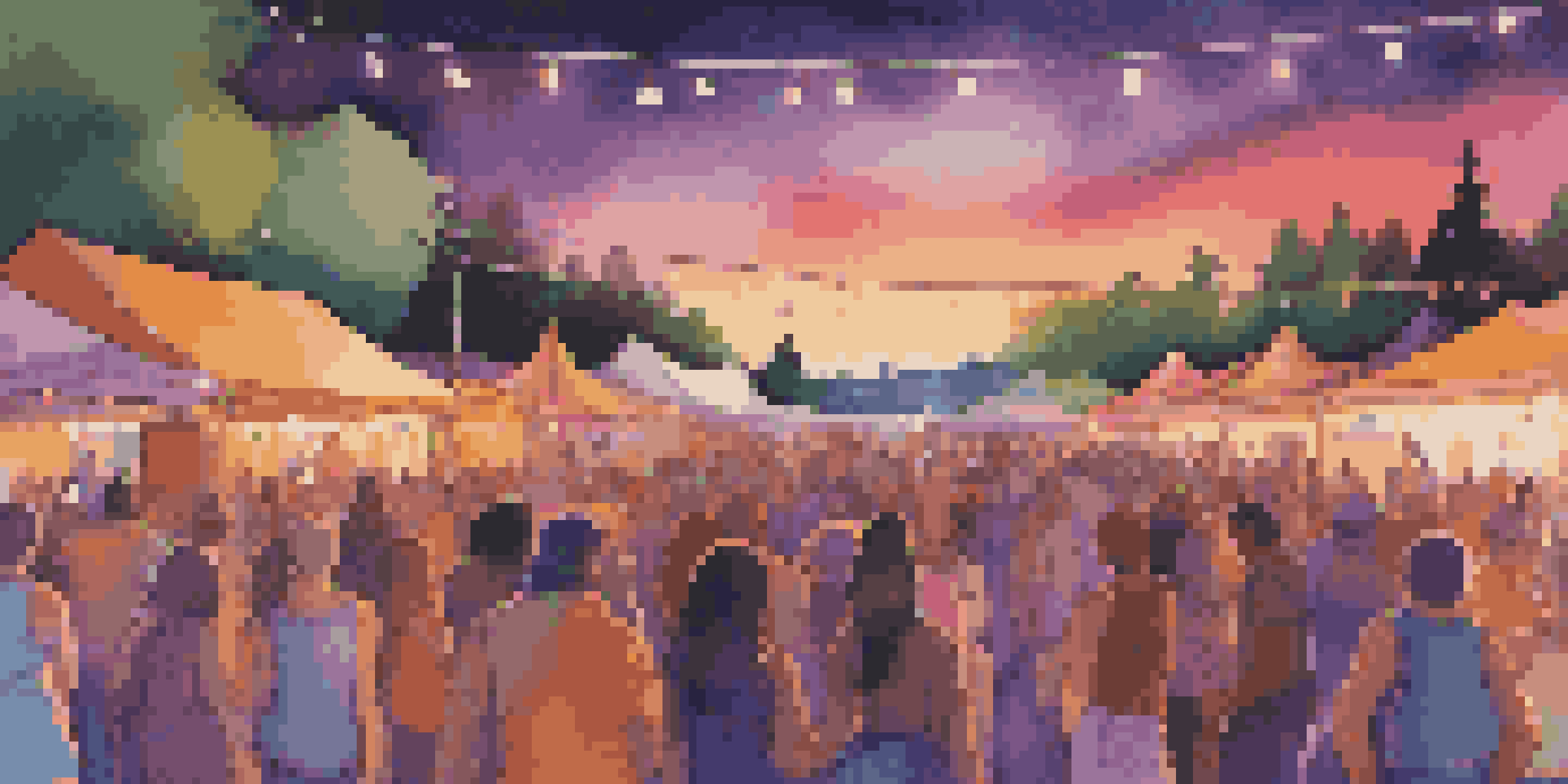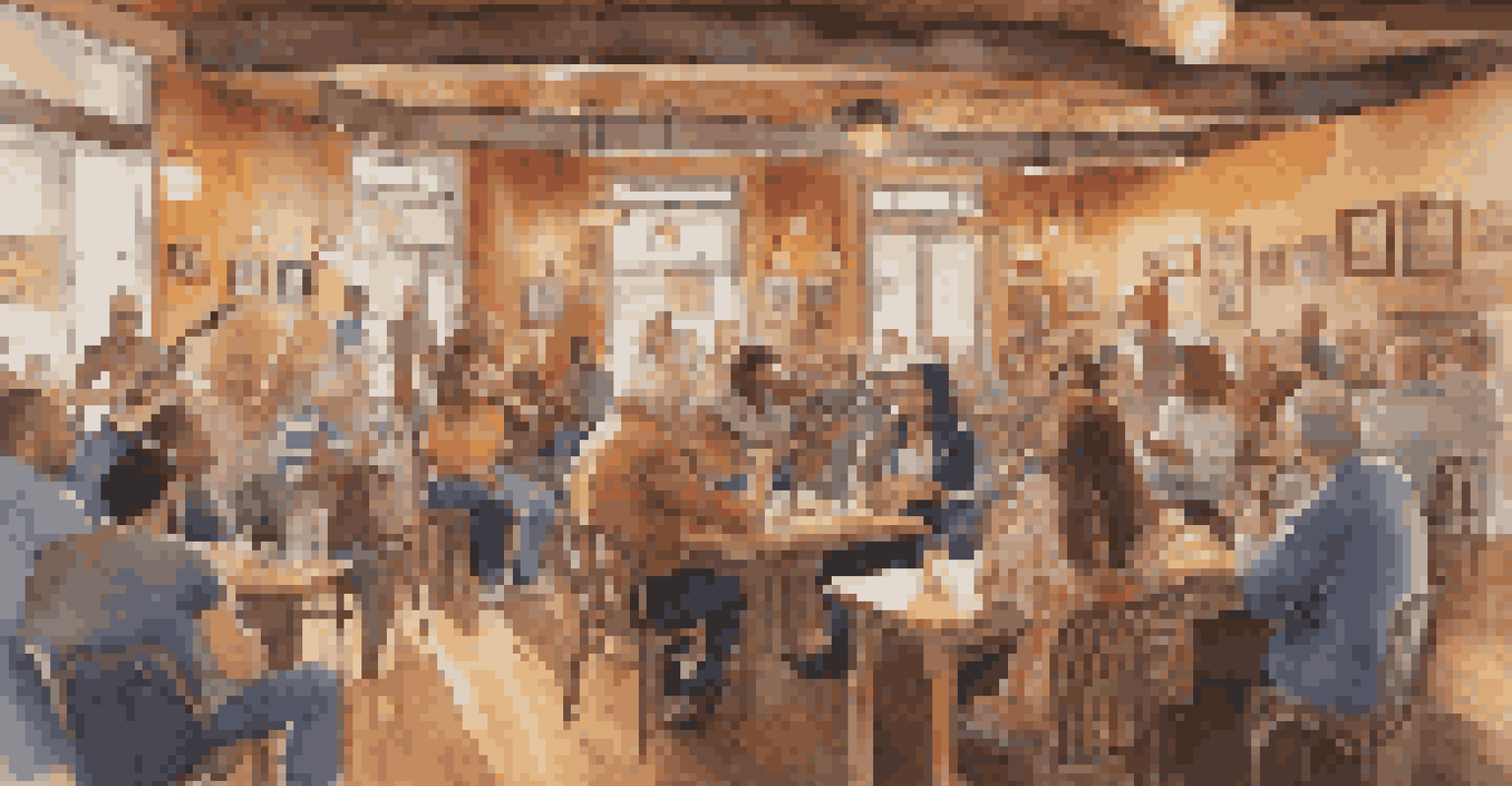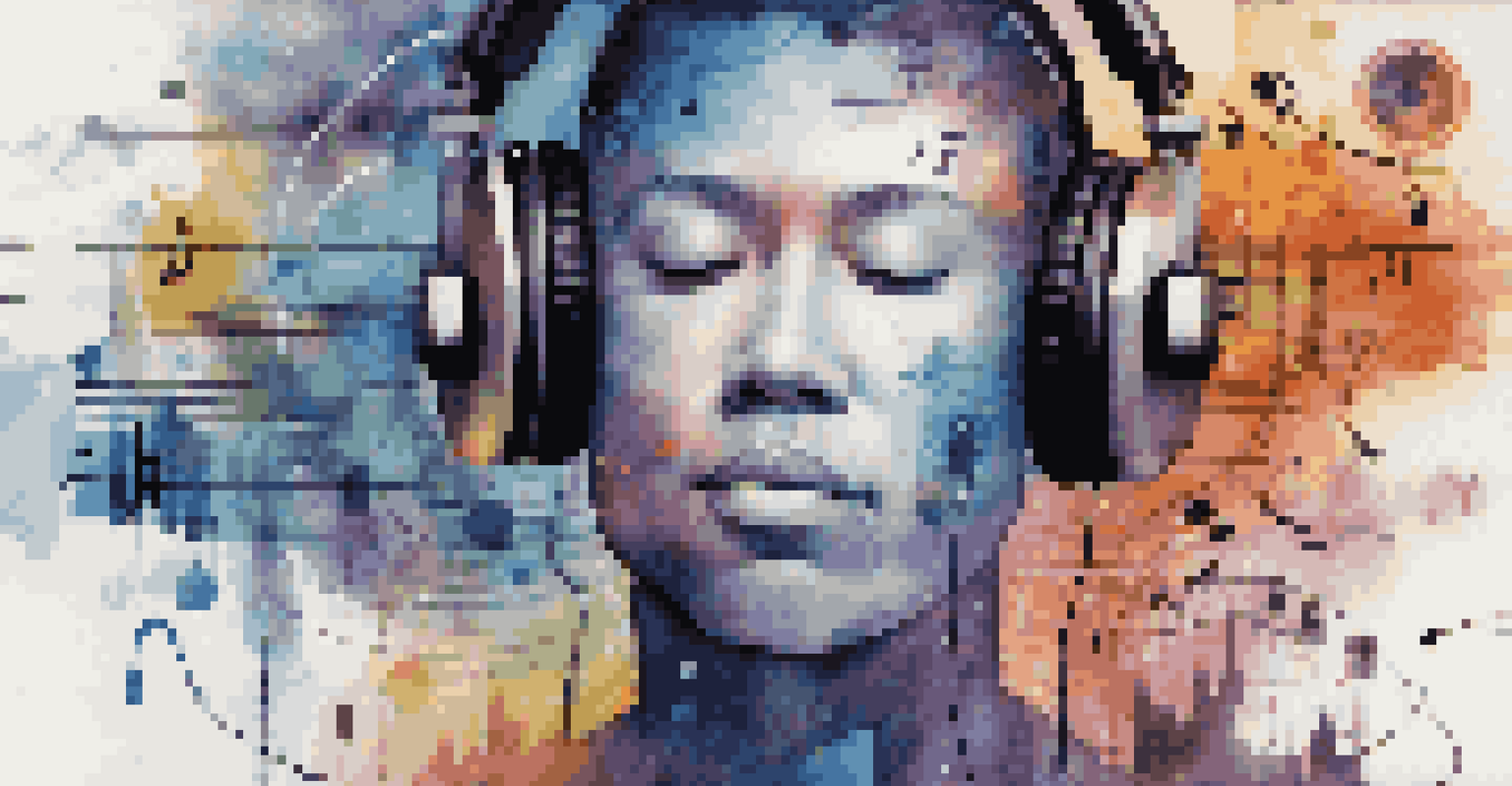Music and Social Capital: Building Networks Through Sound

Understanding Social Capital and Its Importance
Social capital refers to the relationships and networks that help individuals and communities thrive. It's not just about having friends; it's about making connections that can lead to opportunities. Think of it as the glue that holds society together, facilitating trust and cooperation among people.
Music can change the world because it can change people.
In essence, social capital enhances our ability to collaborate and achieve common goals. It plays a crucial role in various aspects of life, from personal growth to community development. When we invest in relationships, we build a supportive environment that nurtures both individuals and the collective.
Music serves as a powerful tool for cultivating this social capital. Whether it's through joining a band, attending concerts, or simply sharing playlists, music creates shared experiences that strengthen bonds. As we engage with others through sound, we weave a fabric of connections enriched by shared interests and emotions.
The Role of Music in Community Building
Music has a unique ability to bring people together, often transcending cultural and linguistic barriers. Community events, such as festivals or open mic nights, serve as platforms where individuals can connect and engage. These gatherings foster a sense of belonging and collective identity, essential elements of social capital.

When people share musical experiences, they create memories that contribute to a communal narrative. This shared history is a vital part of social capital, as it strengthens ties between individuals. For instance, a local band might unify residents in a neighborhood, transforming strangers into friends.
Social Capital Strengthens Communities
Social capital, built through relationships and networks, enhances collaboration and personal growth within communities.
Moreover, music encourages collaboration, whether through collective performances or community choirs. These activities not only enhance musical skills but also develop trust and cooperation among participants. As people work together to create something beautiful, they build relationships that extend far beyond the music itself.
Music as a Catalyst for Networking
Networking often feels daunting, but music can make it more accessible and enjoyable. Social events centered around music provide a relaxed atmosphere where individuals can mingle and connect without the pressure of formal introductions. A shared passion for a particular genre or artist can break the ice and spark conversations.
The only thing better than singing is more singing.
For instance, attending a concert or a local jam session allows people to bond over their favorite songs. These shared interests form the foundation of new friendships and collaborations. As conversations flow freely amidst the backdrop of music, connections are formed more naturally.
Additionally, musicians often leverage their craft to expand their networks. By collaborating with other artists or performing at various venues, they meet new people and tap into different communities. This interconnectedness not only broadens their reach but also enriches the social fabric of the music scene.
The Impact of Technology on Music and Connections
In today's digital age, technology has revolutionized how we engage with music and each other. Streaming platforms and social media have made it easier to discover new artists and connect with fans worldwide. This accessibility fosters a sense of community, as people share their musical journeys with others.
Online spaces, such as forums and social media groups, allow individuals to discuss their favorite music, share playlists, and even collaborate on projects. These virtual connections can lead to real-life meetups, creating new networks that transcend geographical boundaries. Technology essentially expands the reach of social capital, making it more inclusive.
Music Fosters Connections and Belonging
Engaging with music creates shared experiences that strengthen social bonds and foster a sense of belonging among individuals.
However, it's essential to balance online interactions with in-person experiences. While technology facilitates connections, nothing quite compares to the energy of a live performance or a local music event. By blending digital and physical interactions, we can enhance our social capital through music even further.
Music Genres and Their Unique Communities
Different music genres often cultivate distinct communities, each with its own culture and values. For instance, the punk scene emphasizes DIY ethics and inclusivity, while classical music communities might focus on tradition and craftsmanship. These unique characteristics create spaces where individuals can find their tribe.
When people engage with a specific genre, they're not just enjoying music; they're becoming part of a larger social network. This sense of belonging can be incredibly empowering, as individuals connect over shared values and experiences. For instance, a group of hip-hop enthusiasts might come together to promote social change through their art.
Moreover, these genre-based communities often organize events that further strengthen social ties. From local showcases to international festivals, these gatherings foster collaboration and connection among fans and artists alike. In this way, music acts as a vehicle for building social capital within diverse communities.
Case Studies: Successful Music Initiatives
Several initiatives around the globe have successfully harnessed music to build social capital. Take 'Playing For Change,' for instance, which brings together musicians from different backgrounds to collaborate on songs. This project not only showcases diverse talents but also promotes unity and understanding through music.
Another example is 'Music in the Community,' a program that uses music to engage underserved populations. By offering workshops and performance opportunities, these initiatives help individuals develop skills while fostering connections. Participants often leave with newfound friendships and a sense of belonging.
Technology Expands Music Networks
Digital platforms facilitate music discovery and community engagement, broadening social networks and enhancing connections across borders.
These case studies illustrate how music can serve as a bridge, connecting people and fostering collaboration. As communities come together through sound, they create networks that support personal and collective growth, highlighting the potential of music as a tool for social capital.
The Future of Music and Social Capital
Looking ahead, the intersection of music and social capital is poised for growth. As we become more aware of the importance of connections in our lives, music will continue to play a vital role in fostering these relationships. New technologies and platforms will likely emerge, further enhancing our ability to connect through sound.
Moreover, as global challenges arise, music can offer a sense of hope and solidarity. Collaborative projects that unite artists and communities can inspire collective action and social change. By leveraging music's power, we can build networks that not only support individuals but also address broader societal issues.

In essence, the future of music and social capital is bright. As we continue to embrace the connections formed through sound, we strengthen the ties that bind us, ultimately enriching our communities and enhancing our shared experiences.